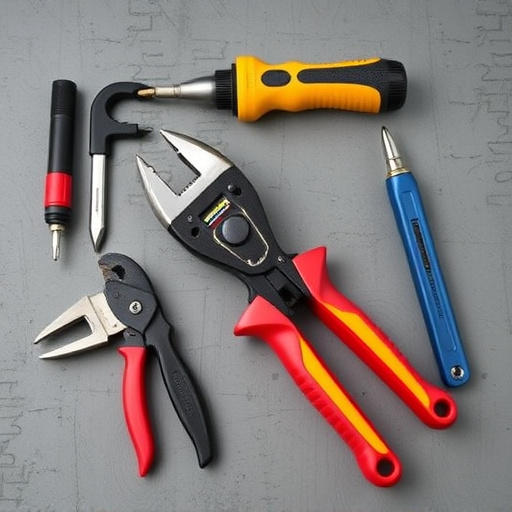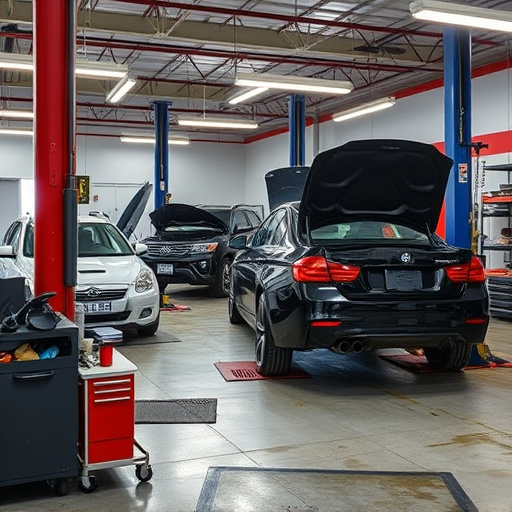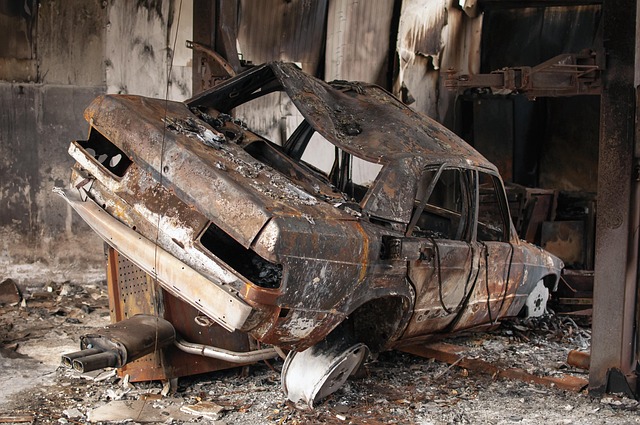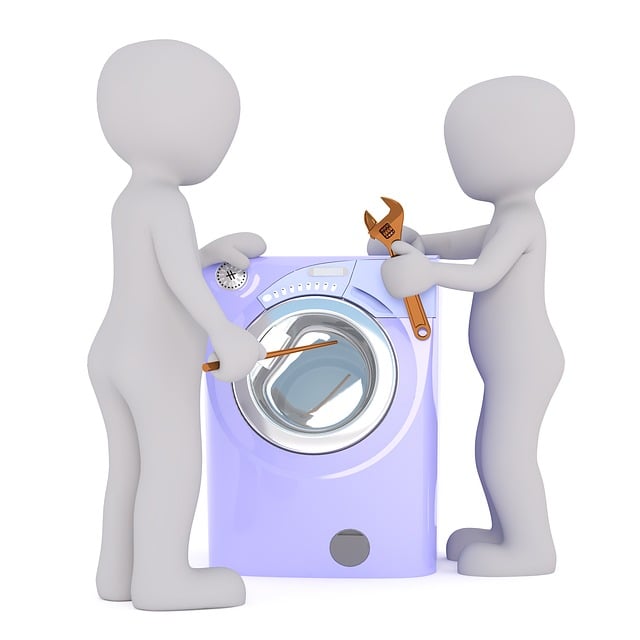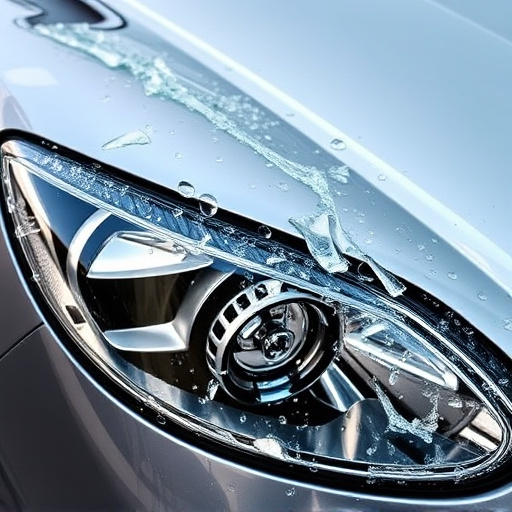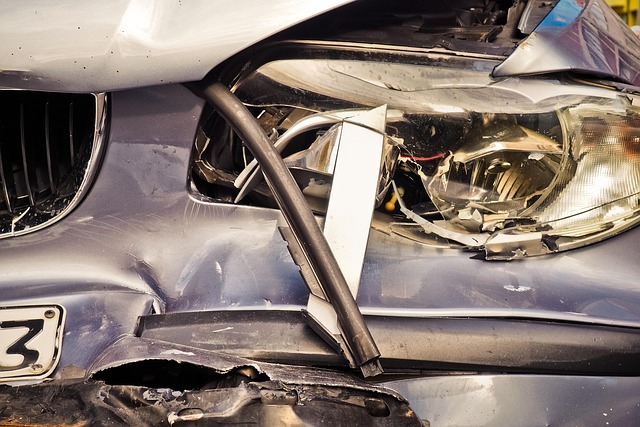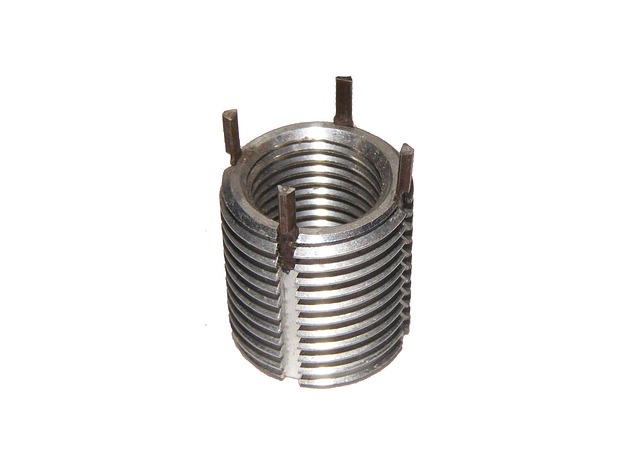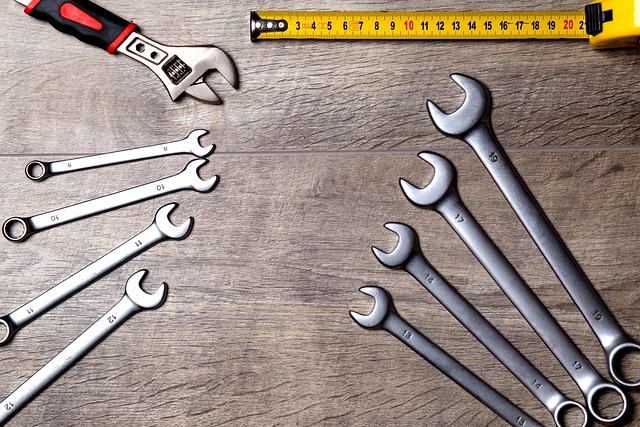TL;DR:
Automotive dealerships are adopting repair quality measurements to enhance service quality, ensure customer satisfaction, and boost safety. These meticulous assessments go beyond visual checks, evaluating precision, material usage, and structural integrity throughout the collision and car damage repair process. By implementing these standardized metrics, dealerships can:
1. Meet or exceed manufacturer specifications.
2. Foster trust with customers and partner shops.
3. Drive repeat business and positive reviews through reliable services.
4. Continuously improve efficiency, reduce rework, and gather data for refinement.
“In today’s competitive automotive landscape, building trust is paramount for dealerships. One powerful tool gaining traction is the utilization of repair quality measurements. This article explores why dealerships are increasingly relying on these standardized metrics to ensure high-quality repairs and boost customer satisfaction. We’ll delve into the benefits, from improved efficiency to enhanced transparency, and share real-world success stories that illustrate how repair quality measurements are revolutionizing trust in the industry.”
- Understanding Repair Quality Measurements: What They Are and Why They Matter
- Benefits of Implementing Standardized Repair Quality Metrics for Dealerships
- Real-World Success Stories: How Repair Quality Measurements Boost Dealer Trust and Customer Satisfaction
Understanding Repair Quality Measurements: What They Are and Why They Matter

Repair quality measurements are a crucial aspect of the automotive industry, especially for dealerships that rely on efficient and reliable vehicle body repairs. These measurements go beyond simple visual inspections and involve a systematic evaluation of the repair process and its outcome. By quantifying and analyzing various factors, such as precision, material usage, and structural integrity, dealerships can ensure that their chosen collision centers and vehicle body repair shops maintain consistent, high-quality standards.
This approach matters because it directly impacts customer satisfaction and safety. Accurate measurements help identify any deviations from the original manufacturer’s specifications, ensuring that repaired vehicles meet or exceed quality expectations. Moreover, in a competitive market where dealerships strive to provide excellent service, adhering to strict repair quality measurements can foster trust and strengthen partnerships with reputable collision centers, ultimately contributing to a positive reputation for both parties.
Benefits of Implementing Standardized Repair Quality Metrics for Dealerships
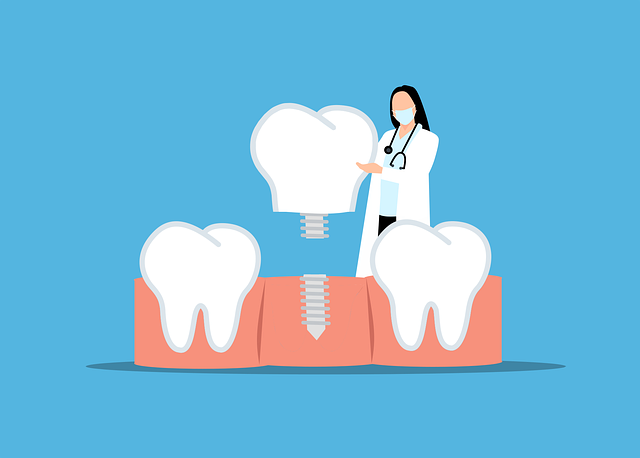
Implementing standardized repair quality metrics offers dealerships numerous advantages. By establishing clear and consistent measures for evaluating auto collision repair and car damage repair work, dealerships can ensure higher levels of consistency in their service. This means that every fender repair or other automotive restoration task is completed to a set standard, maintaining the dealership’s reputation for quality.
Additionally, these metrics provide valuable data that allows for continuous improvement. Dealerships can identify areas where they excel and pinpoint aspects that need refining. This data-driven approach enhances efficiency, reduces rework, and ultimately contributes to customer satisfaction. With standardized repair quality measurements in place, dealerships can confidently trust their trusted shops to deliver top-notch auto collision repair and fender repair services while upholding the dealership’s high standards.
Real-World Success Stories: How Repair Quality Measurements Boost Dealer Trust and Customer Satisfaction

In the highly competitive automotive industry, maintaining customer trust is paramount for dealerships. One effective strategy that has gained significant traction is adopting repair quality measurements. Real-world success stories illustrate how this approach not only enhances dealer trust but also boosts customer satisfaction. For instance, leading auto dealerships have witnessed a surge in repeat business and positive reviews by implementing rigorous standards for car body repair and collision repair services.
These measurement tools ensure that every repair job, from minor dent removal to complex structural repairs, meets or exceeds industry benchmarks. By holding repair shops accountable for their work using these metrics, dealerships can assure customers of the highest quality auto bodywork. This transparency builds trust, knowing that any issue is quickly identified and rectified, ensuring a safe and reliable driving experience.
Repairs are a critical aspect of vehicle ownership, and repair quality measurements play a pivotal role in building trust between dealerships and their customers. By implementing standardized metrics, dealerships can ensure consistent and high-quality repairs, fostering customer satisfaction and loyalty. The success stories highlighted in this article underscore the value of these measurements as a game-changer in the automotive industry, where transparency and reliability are paramount. Trusting shops that adhere to repair quality standards is essential for maintaining a positive reputation and ensuring long-term success in today’s competitive market.
